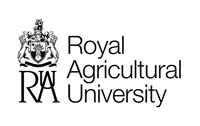Prof D Hopkins, Dr S O’Rourke
No more applications being accepted
Funded PhD Project (Students Worldwide)
About the Project
Royal Agricultural University, Cirencester, Gloucestershire GL7 6JS
Stipend: £15,000 per year with bench and tuition fees covered
Applications are invited for a PhD studentship to join the pesticide resistance research team at the Royal Agricultural University lead by Dr Shona O’Rourke.
The emergence and spread of invertebrate resistance to pesticides is a matter of growing concern both in the UK and globally. These concerns have led to increased restrictions on pesticide use, have restricted the availability of some pesticides and imposed more strict protocols for registration of chemicals.
As invertebrate pest resistance can cause significant yield losses in arable crops and continued use of pesticides in their current format will only exacerbate this problem, there is a need to understand the mechanisms by which resistance is developed and sustained within invertebrate populations. This will improve our understanding on how to produce effective pesticides and enact effective and integrated pest control programmes. An effective method of pest control will contribute to the economic well-being of farmers and food security within in the UK and lead to less negative environmental impacts.
PhD Objectives:
• To determine which pests have developed resistance to pesticides in the UK, identify research questions that have been answered and identify gaps in the knowledge by conducting a comprehensive literature review.
• To determine the mechanisms by which pesticide resistance develops in key invertebrate systems by conducting laboratory tests.
• To develop a model to examine the development of pesticide resistance in invertebrates in the UK.
Outcomes:
By the end of this research, the student will:
• Provide expert opinion on pest resistance in at least one key invertebrate pest species within British farming.
• Produce data that will contribute to the current knowledge base on pesticide resistance and make recommendations for further research in the field.
• Produce data/models that will allow end users of pesticides to better understand the impacts of pesticide choices.
• Produce high quality research articles for publication in peer-reviewed journals.
Experience needed:
The PhD candidate will have:
• Minimum 2:1 BSc (MSc preferred) in an Agricultural, Environmental or Biological subject.
and/or
• Experience in invertebrate pesticide research/industry.
• Candidates must have invertebrate experience; crop experience alone will not be considered.
• Previous applicants need not apply.
Skills to be developed during studies:
• Exposure scenario and ecotoxicological testing, protocol adaptation, invertebrate husbandry, oxidative stress assays, biomarker testing, genetic assays, histology, mathematical/statistical modelling.
• Communication skills (written/presentation), critical analysis, problem solving, collaboration.
How to applyExpressions of interest should be sent via email to Dr Shona O’Rourke ([Email Address Removed]) to request an application form. Informal enquiries are welcome ([Email Address Removed]).
Applications close: 5pm, 20 December 2017.
Interview date: January 2018
Start date: Preferably February start however start date can be flexible.
Supervisory team: Prof David Hopkins; Dr Shona O’Rourke

 Continue with Facebook
Continue with Facebook

